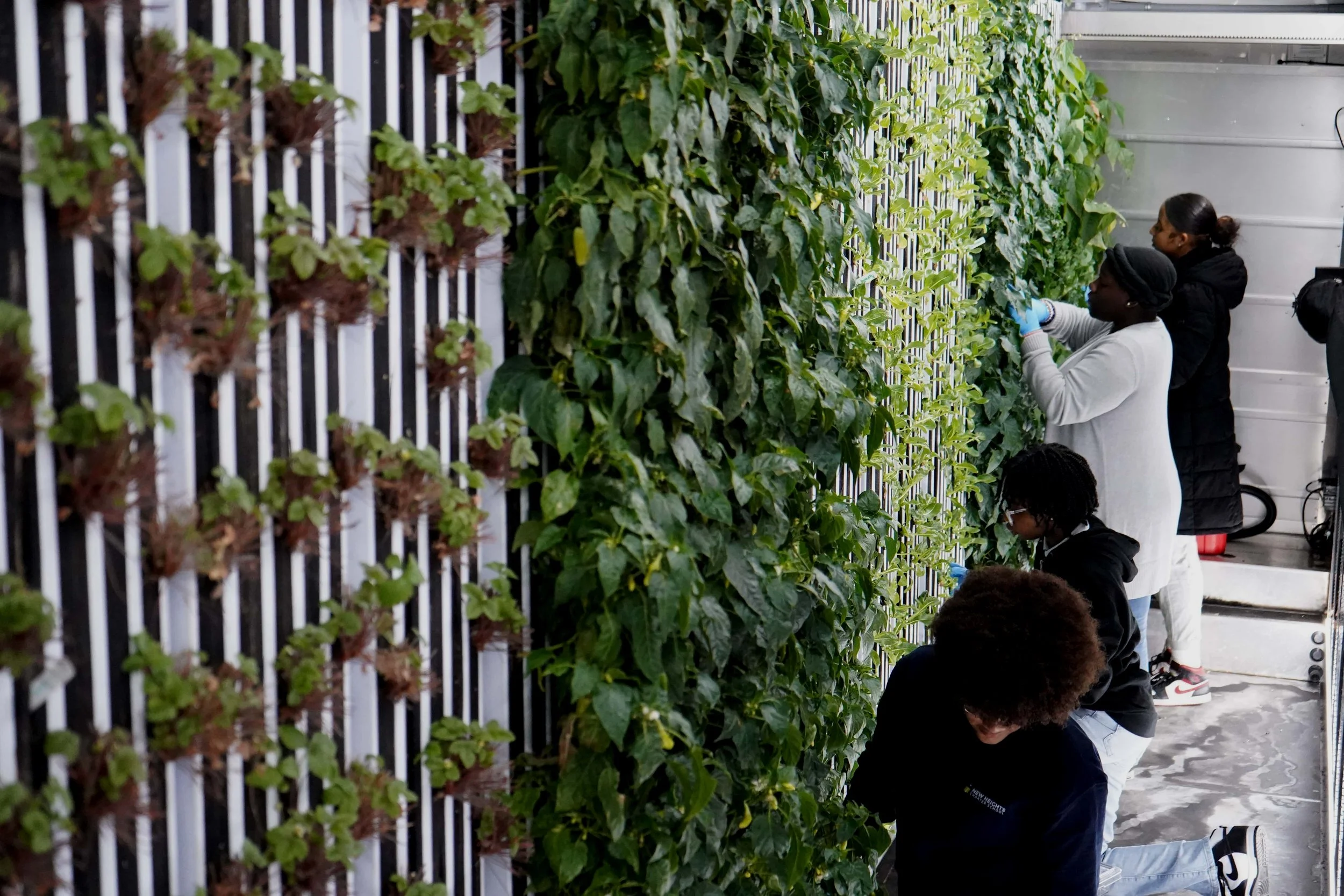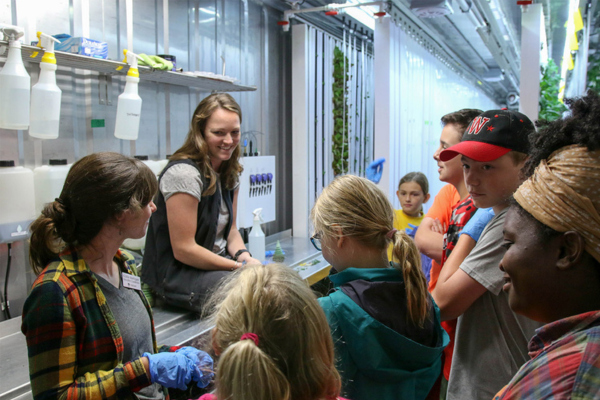Grants can help fund your Freight Farm! Learn where to find grants, how to write a winning application, and what to expect in the process.
Read MoreGrants provide a path to funding a Freight Farm for schools and community programs, offering fresh produce, hands-on education, and sustainability benefits. Explore funding options and how to apply today!
Read MoreGrants can help fund your Freight Farm and make your vision a reality. This guide covers how to find the best funding opportunities, build a compelling application, and stay grant-ready year-round. Explore our expert tips and resources today!
Read MoreHydroponic container farms are transforming classrooms into dynamic environments for social emotional learning (SEL). Learn how these innovative tools cultivate essential life skills while growing fresh produce.
Read MoreDiscover how container farms are revolutionizing STEM education by providing hands-on learning in botany, physics, chemistry, and more. Prepare students for the future with innovative, sustainable farming systems.
Read MoreUrban agriculture is revolutionizing food production in cities, transforming unused spaces like rooftops and vacant lots into thriving farms. Discover how urban farming enhances food security, sustainability, and economic growth, while reducing environmental impact.
Read MoreSchools across the country are finding innovative ways to make their Freight Farms more functional and educational for students. By customizing the interior and exterior, schools can turn these farms into engaging spaces for hands-on learning, science projects, and sustainability initiatives.
Read MoreWhether looking to supply sustainable food, jumpstart modern agriculture curriculums, encourage student engagement, or simply grow the best greens around, universities around the country are relying on hydroponic container farms to create impactful farm to campus programs.
Read MoreAt Freight Farms, we work with campuses to integrate hydroponic produce into dining services and school curricula. Read on as we explore the ways a vertical farm can transform your campus.
Read MoreWe’re proud that so many schools use our hydroponic farming technology for their farm to school program. From California to Massachusetts, Freight Farms are put to work to achieve each of the pillars of farm to school: local food sourcing; student access to healthy food; and learning opportunities. In this blog, we explore each.
Read MoreFreight Farms had the pleasure of exhibiting at three education-focused events, each providing a unique platform to connect with educational decision-makers. Our mission was to share the benefits of vertical farming, showcasing how a container farm can serve not just as a food source for the school and/or community, but as a dynamic classroom for various courses, research, and STEM opportunities.
Read MoreOne of the most promising advancements in campus dining is the incorporation of hydroponics. This method offers numerous benefits, including improved sustainability, enhanced food security, and fresher, more nutritious produce.
Read MoreAdding container farms to zoos opens up exciting possibilities for unique interactive experiences that captivate visitors while promoting sustainability and healthy living.
Read MoreBy integrating crops grown in container farms, universities can revolutionize their dining hall menus with fresh, local produce year-round.
Read MoreOne of the most promising advancements in campus dining is the incorporation of hydroponics. This method offers numerous benefits, including improved sustainability, enhanced food security, and fresher, more nutritious produce.
Read MoreBy introducing a container farm, hotels can grow fresh, nutritious, and diverse crops on their premises, offering guests an unparalleled dining experience.
Read MoreBy integrating Freight Farms into the K-12 curriculum, schools can address multiple educational and environmental objectives, fostering a hands-on learning experience that aligns with modern educational standards.
Read MoreBy integrating container farming into their programs, Boys and Girls Clubs across the country are enhancing food security, promoting sustainability, and providing invaluable educational opportunities for young people.
Read MoreIn this article, we examine the effectiveness of Freight Farms and traditional school gardens in K-12 settings and analyze their benefits, challenges, and impact on educational environments.
Read MoreIn this article, we explore how PTAs and Booster Clubs can successfully fund a Freight Farm, providing students with a cutting-edge learning tool that pushes the boundaries of traditional classroom education.
Read More




















